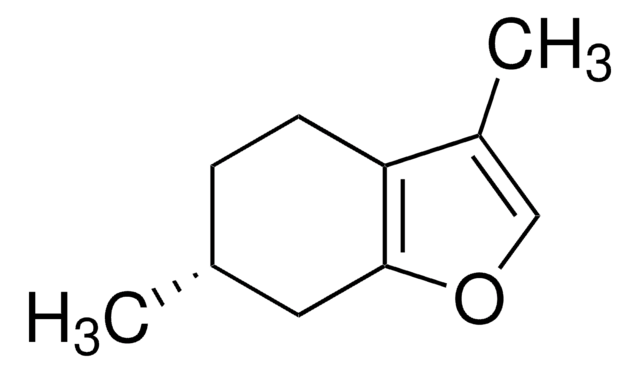About This Item
Recommended Products
grade
analytical standard
Quality Level
vapor density
9.27 (vs air)
vapor pressure
1 mmHg ( 133.2 °C)
Assay
≥99.5% (GC)
autoignition temp.
446 °F
shelf life
limited shelf life, expiry date on the label
technique(s)
HPLC: suitable
gas chromatography (GC): suitable
bp
330 °C (lit.)
mp
30-34 °C (lit.)
32-34 °C
density
0.786 g/mL at 25 °C (lit.)
application(s)
cleaning products
cosmetics
flavors and fragrances
food and beverages
personal care
format
neat
SMILES string
CCCCCCCCCCCCCCCCCCC
InChI
1S/C19H40/c1-3-5-7-9-11-13-15-17-19-18-16-14-12-10-8-6-4-2/h3-19H2,1-2H3
InChI key
LQERIDTXQFOHKA-UHFFFAOYSA-N
Looking for similar products? Visit Product Comparison Guide
Related Categories
Application
Recommended products
Storage Class Code
11 - Combustible Solids
WGK
WGK 3
Flash Point(F)
212.0 °F - closed cup
Flash Point(C)
100 °C - closed cup
Personal Protective Equipment
Regulatory Listings
Regulatory Listings are mainly provided for chemical products. Only limited information can be provided here for non-chemical products. No entry means none of the components are listed. It is the user’s obligation to ensure the safe and legal use of the product.
JAN Code
74158-BULK:
74158-5G:
74158-1G:
74158-VAR:
Choose from one of the most recent versions:
Certificates of Analysis (COA)
Don't see the Right Version?
If you require a particular version, you can look up a specific certificate by the Lot or Batch number.
Already Own This Product?
Find documentation for the products that you have recently purchased in the Document Library.
Customers Also Viewed
Our team of scientists has experience in all areas of research including Life Science, Material Science, Chemical Synthesis, Chromatography, Analytical and many others.
Contact Technical Service











